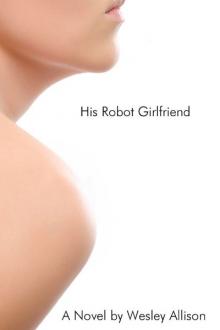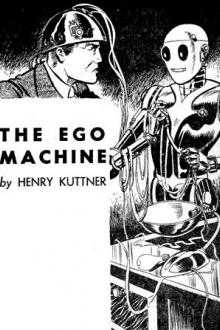The Boy Who Fell from the Sky, Jule Owen [classic romance novels txt] 📗

- Author: Jule Owen
- Performer: -
Book online «The Boy Who Fell from the Sky, Jule Owen [classic romance novels txt] 📗». Author Jule Owen
“No. I live in Wandsworth.”
“You come a long way for a piano lesson.”
“It’s not just a piano lesson. Gen is a pretty special teacher.”
“I know. I searched for you both on the Nexus. You’re famous.”
“Hmmm . . . amongst those interested in young people who play piano music, perhaps. But yes, Gen is famous.”
“I’m not even notable in my class at school. Not in a good way.”
“You build things like this bee. That’s much more impressive.”
“It’s nice of you to say so, but any hobbyist would be able to build one of these.”
“I’ve never seen one before.”
“Only because you don’t live on a farm. Beebots are used as crop pollinators in places where they still grow biofood, because there aren’t enough real bees to pollinate crops.”
“Do beebots normally talk?”
“No.”
“You’ve done something clever and original with it. I wouldn’t know where to start.”
“I would never be able to play Bach.”
“How do you know I was playing Bach?”
“My dad loved classical music, especially piano music. Bach was his favourite composer.”
“Gen told me your dad passed away. I’m so sorry, Mathew.” When he doesn’t respond, she says, “What do I do with the beebot? Does it fly home?”
“Keep it. If you ever want to chat, say ‘Call the beekeeper’ to it, and it will call my secure account on the Blackweb. I can’t see you unless you accept my call. Keep it locked in a drawer if you don’t trust me.”
“I trust you.”
“You shouldn’t. Right now you shouldn’t trust anyone. I have to go,” he says. “Someone is looking for me. Please do call me, though.”
“I will,” she says.
17 O’Malley Again
One of the locksmiths, the older man, is standing in the doorway wearing a guilty expression.
“Your cat,” he says. “It was in the Darkroom.”
“Yes,” Mathew says. “I put him there because there are no windows or doors in the Darkroom. Your colleague said you wouldn’t need to go in.”
“He didn’t tell me.” He says this like it’s Mathew’s fault. “I thought you were in there. I came to check what you wanted us to do with the old locks. The back door was open . . .”
Mathew scrambles to his feet.
“He rushed past me. I tried to grab him,” the locksmith says, following Mathew as he runs along the hallway, through the kitchen, and into the garden. Mathew starts to search frantically. O’Malley is nowhere to be seen.
“Did you see where he went?” Mathew asks.
“He jumped the wall, I think.” The locksmith gestures towards Gen Lacey’s garden.
“Good. Okay.” Mathew rushes back through the hallway, through the front door, and out onto the pavement to Gen’s house. He leans on the doorbell. After too many agonising seconds Gen answers, smiling. “Hi, there!” She sees his face. “What’s up?”
“O’Malley’s run away again.”
“Oh no!”
“I think he may be in your garden. Do you mind if I look?”
“Of course not.” Gen leads the way through her house. “How did he escape?”
“We’re having new locks fitted. The bioID compatible ones. Mum ordered them.”
Gen opens the back door, and they go into the garden.
“O’Maaalleeey!” Mathew calls. “O’Malley?” He gets on his hands and knees, peering under bushes, running his hands into the dark spaces at the back near the fence.
“Damn cat,” he says. “He’s here somewhere. He knows I’m after him. Bloody creature is ignoring me.”
“He wants some freedom.”
“Yes, but if a policeman catches him, he’ll be shot. Okay to stand on this chair?”
“Be my guest.”
Mathew gets on the garden chair and peers over the fence.
“He can’t have gone far.”
“Why don’t we go door to door and tell people he’s missing? I’ll go and talk to the soldiers on the roadblock at the end of the street and let them know.”
“Thanks, Gen.”
“No problem at all.”
Mathew follows Gen onto the street and starts knocking on doors, speaking to neighbours he’s never met before. There’s no response from number 21, but he manages to find someone in at all the other houses. The All-Day Curfew has grounded most people from their work.
Gen comes back from her visit to the roadblock. “The soldiers were actually really nice. They said if they find O’Malley, they’ll bring him back to you. They won’t shoot him.”
Mathew sighs. “Thanks, Gen.” He runs his hand through his hair. “Mum is going to go crazy.”
“No, she won’t. And anyway, he’ll come home. He’s stretching his legs. Cats always come home eventually.”
It’s 8:30 in the evening. Mathew is sitting in his mother’s bedroom scanning his neighbour’s garden with the night vision in his Lenz. If he hadn’t given the beebot to Clara, he could have used it to hunt for O’Malley. He considers the spare in his bedroom and is on the verge of fetching it when he catches movement in his peripheral vision. He turns his head quickly, scanning for the source, his Lenzes taking a moment to refocus.
At first he can’t distinguish it. Then a grainy image reveals itself to him. In the shadow of an overhanging tree, on the wall separating the gardens of number 19 and number 21, is a blackbird, flicking its tail, watchful. It’s alert to something. The bird stands poised to take off, its head cocked, watching, listening. Even in the poor light the yellow of its beak and the ring around its eyes are striking. It’s such a rare sight Mathew is mesmerised.
Then he realises why the bird is agitated.
At the other end of the wall, his chin and chest on the bricks, O’Malley is poised in stalking position, sizing up the bird, calculating a strike. He watches in horror as O’Malley’s rump rises and wiggles the way it does before he pounces on something.
Before he even knows what he’s doing, Mathew is running down the stairs, through the house, and out the back door. The bird is startled by the noise of Mathew crashing into the garden and takes flight. O’Malley leaps and catches it, disappearing on the other side of the wall.
“Damn,” Mathew says. Pushing the garden bench against the wall, he climbs up and peers across the top of the glass roof of the conservatory. O’Malley is sitting in the middle of a pane of glass with the blackbird in his jaws. When he spots Mathew, he starts to growl.
“O’Malley, drop it!” he whispers loudly. But O’Malley has no such intention.
Mathew hauls himself onto the wall and sits astride. The bird may be already dead – it’s impossible to tell. O’Malley watches him carefully but doesn’t move. Mathew ponders whether the conservatory roof will take his weight. He tests it with one foot and then another, lowering himself tentatively, still bearing most of the load with his arms clinging to the wall.
The roof is sturdy, he decides.
O’Malley is still, but his aquamarine eyes follow Mathew as he edges forward.
“Drop the bird, O’Malley!” Mathew says, lunging forward, and grabbing the cat by the scruff of the neck. Taking a grip of O’Malley’s mouth, he levers his jaws open and releases the bird. Miraculously, it flies away.
Mathew pulls the cat to his chest in a bear hug and starts to edge back towards the wall. O’Malley kicks, hard, raking the skin on Mathew’s wrists with the long claws on his back feet. Mathew loses his grip and then his footing. O’Malley jumps free, and Mathew topples.
He lands hard on the roof and has a moment to register that it doesn’t seem as solid as he thought, before it gives way beneath him.
It takes him only a second to fall, but as is the way of these things, it feels much longer. In that fraction of time, his brain has long enough to register surprise and note that he’s falling ten feet to the floor on plates of glass.
When he lands, he freezes for several moments, breathing. Then he lifts his hands off the glass slowly, checking for blood. There’s a piece of broken glass stuck to the palm of his left hand, but remarkably he’s not bleeding. He carefully picks off the glass and drops it on the floor amongst the rest of the debris, then lifts his arms and comes slowly to his knees, finding a place to put his hand for support. Once on his feet, he examines his trousers, feels his legs. Amazingly, nothing is hurt.
The floor is a mess. Bits of glass are shattered across the tiles. In addition to the section of the roof that’s now on the floor in pieces, the blinds are partially torn and hanging, bits of string and canvas and shrilk trailing around him like a broken sail. The orange trees are crushed and the orchids have been thrown from their pots and are lying prone, roots akimbo, in scattered soil. He raises his head. There’s a gaping hole in the roof of the conservatory. The night’s sky is visible through it. Grey clouds cross a bright moon; between them, dim, blinking stars.
He has destroyed Mr Lestrange’s conservatory.
He reflects on how Lestrange will react. Somehow he can’t imagine him angry.
With all the noise, he’s amazed no one has come rushing in. The door into the kitchen is shut, and he worries whether it’s locked and he’s trapped in the conservatory until Lestrange finds him; but when he tries it, it’s open. The kitchen and hallway are in darkness. As he walks forward, the lights automatically come on.
“Hello?” he says, moving towards the front door. “Mr Lestrange? Hello? Mr Lestrange, are you there?” There’s no response.
Across the hallway is the door to the library. “Mr Lestrange!” he raises his voice to carry through the house and goes up the stairs. “Hello?” Pushing open each bedroom door in turn, knocking before he does so, he finds the house empty. Each room is as pristine as he saw it through the eyes of the beebot.
Downstairs, he tries the Darkroom and then goes into the library.
Here are the books – the gold leaf on the spines glinting in the bright light hanging from the ceiling.
The table, an antique with veneered surfaces shined to a high polish, has nothing on it. The books he saw Lestrange reading have been cleared away.
Scanning along the shelves, following history around the room, as he saw via the beebot, the books are arranged chronologically starting with ancient history, all the way to modern affairs. World War III: The First Space War is on the shelf nearest the door, but it’s not the last book on the shelf. It isn’t even the last shelf. He sweeps the spines. The titles don’t make sense.
There are books on the Second Space War. Something called The End of Europe and the USA: The Atlantic States Treaty and the Founding of ATLAS and another called The Dishonest War: Biological Weapons and Population Control through Manmade Viruses at the End of the Twenty-First Century.
Kneeling next to World War III, he extracts it by its spine and flicks through. There’s a chapter on the destruction of the US Battlestars and the subsequent destruction of the Chinese moon base. It describes Russia’s push into Europe. All these things have actually happened in the past couple of days. It’s strange but not beyond possibility that Mr Lestrange would have written about these things already. But the book appears to describe the rest of the war, the use of robot soldiers and hypersonic planes and the critical





Comments (0)